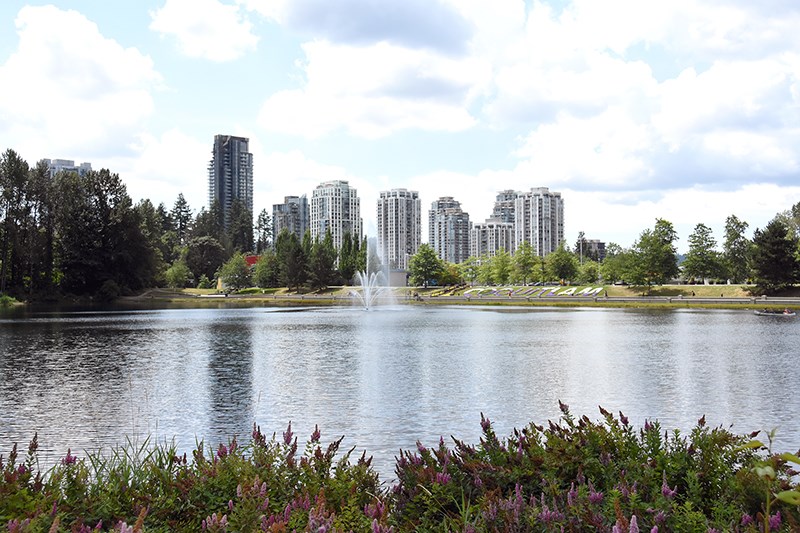A plan being developed for Coquitlam’s City Centre neighbourhood must significantly increase the amount of affordable housing stock for the area, say several city councillors.
While the early outlines of the document already call for no net loss of non-market units, Coun. Steve Kim said that may not go far enough.
“Is there a way to see a net increase?” he asked during Monday’s committee meeting. Noting the rising cost of housing in the area, he added: “I think some of these housing types are going to be key.”

Coun. Chris Wilson went one step further, saying he would see the plan as a failure if it did not include an exponential increase in the amount of affordable housing stock in the area.
“No net loss is great but I want to see a tripling of below-market units at least,” he said. “We are talking about thousands and thousands of units in this space. If we are not going to get at least a tripling or quadrupling or 10 times below-market units, I think we have completely failed, to be honest.”
Wilson pointed to his experience on council when the city was drafting the Burquitlam-Lougheed Neighbourhood Plan. He said he is frustrated by the fact that some of the amenities called for in the document have yet to come to fruition.

“We have some incentives but as we have seen, some developers aren’t taking advantage of those incentives,” he said.
The housing issue is one part of a larger question councillors were grappling with Monday: How to make sure the amenities the city wants for City Centre — childcare spaces, affordable housing, more commercial buildings — actually get built.
One example is the establishment of an entertainment district between Lincoln Avenue and Lougheed Highway.
Coun. Craig Hodge noted that while the city can draw a line on a map marking an area for bars and restaurants, they cannot force such businesses to locate within that area.
“How do we dictate what type of business is going to be in there?” he said. “We can say it is an entertainment zone but if we end up with a watch repair shop that closes at 5 p.m., that is not entertainment.”
Commercial nodes need to offer services that benefit residents rather than “just new hair and nail salons,” added Coun. Brent Asmundson.
But while the city cannot force developers or the business community to build and establish certain services, it can create incentives. For example, Jim McIntyre, Coquitlam’s general manager of planning and development, said when it comes to restaurants and bars, the city can relax the restrictions around distances between liquor-primary establishments in a certain area.
The early outlines of the City Centre Area Plan also call for a hotel to be located at Lougheed Highway and Pinetree Way to anchor its business district.
McIntyre said city planners have been taking a “more proactive role in this,” initiating discussions with the area's two largest land holders, Morguard and Marcon.
“We are pushing them all to have a good close look at that,” he said.
Landing a hotel could be enticing to a developer, McIntyre added.
The new neighbourhood plan is looking at ways of increasing the amount of commercial space in City Centre to meet the goal of creating 22,000 new jobs in the area by 2041. McIntyre noted that building a hotel could help a prospective developer meet its commercial floor-area requirements for its project.
He added that Coquitlam is not the only community looking to get a hotel, with Port Moody also in the running. That raises the stakes, he said, because once a new hotel is established in the Tri-Cities, it is unlikely the region could sustain another one for some time.
“If a hotel comes in out here, that will close off the market for a while,” McIntyre said, “so we have to make sure we land one [in Coquitlam].”



